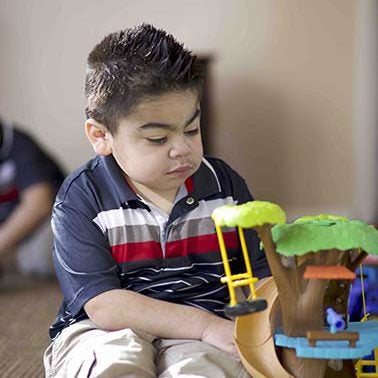Learn more about Hunter syndrome
Hunter syndrome (also known as mucopolysaccharidosis type II, MPS II) is a rare genetic disease that almost exclusively affects boys. The condition presents at around 2–4 years of age with a combination of symptoms, many of which overlap with common childhood complains, making it hard to diagnose.
The articles found on this page take a detailed look at some of the different Hunter syndrome symptoms, along with:
- The basics of Hunter syndrome including genetics and the metabolic effects of the disease
- The key signs and symptoms that may indicate the condition
- How Hunter syndrome may be diagnosed
Articles available now focus on the presence of sleep apnoea, hernias and recurrent ear and respiratory infections in children, and how they may be a sign of Hunter syndrome.
If you think that your child may be showing two or more of the symptoms of Huntto your doctor.


-
Delayed diagnosis - a mother's journey
This article highlights the diagnosis of rare diseases, with examples from Hunter syndrome parents of their own diagnosis journeys.
-
The broken metabolism in Hunter syndrome
This article highlights the metabolic nature of Hunter syndrome.
-
The Hunter syndrome gene
This article highlights the genetics and DNA changes present in a child with Hunter syndrome.
-
Recurrent ear and respiratory infections in children
This article highlights how recurrent ear and respiratory infections , along with other signs and symptoms, could be an indication of Hunter syndrome.
-
Umbilical and inguinal hernias in children
This article highlights how hernias, along with other signs and symptoms, could be an indication of Hunter syndrome.
-
Sleep apnoea in children
This article highlights how sleep apnoea, along with other signs and symptoms, could be an indication of Hunter syndrome.

For more detailed information about Hunter syndrome, visit Huntersyndrome.info

Follow Rare2Aware on Facebook, Instagram and Twitter to read stories shared by patients, families and heathcare professionals of living with Hunter syndrome and other rare diseases

Visit the Hunter syndrome YouTube channel for interviews with families and animations that help explain Hunter syndrome
